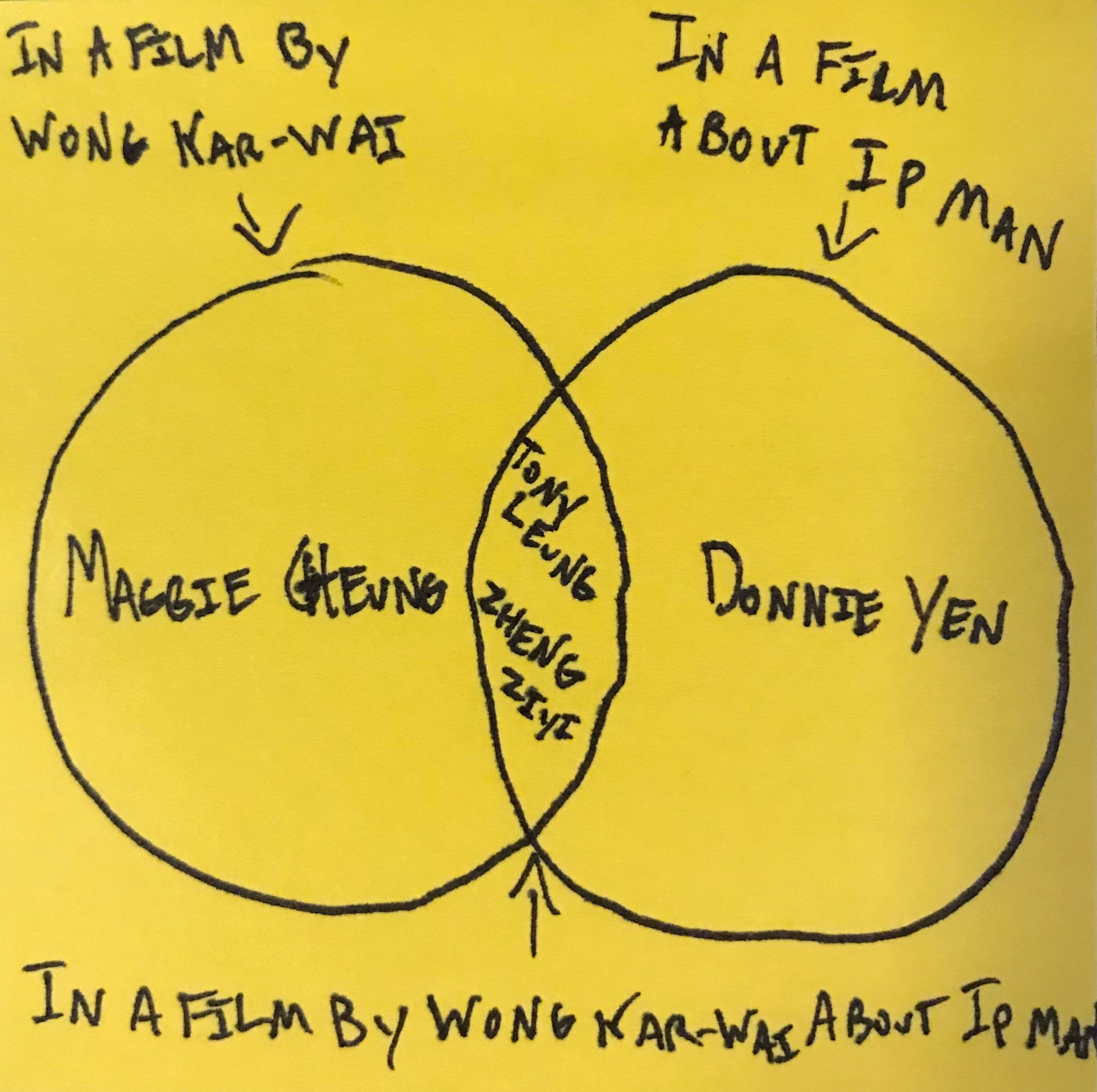My brief peak as a martial artist came at the age of 11 when I partially cracked a sheet of plywood with my hand on my fourth try. Knowing there was little left for me to conquer, I left Northampton Karate Dojo, hung up my green belt, and retired from the life of combat I had been leading one hour a day every other week after school for the previous six months.
As we all know, however, the past has a way of sticking with you. Though I was able to move on from my “illustrious” martial arts career, I remained an avid fan of the film genre for years, marveling at the grandeur of (semi) historical wire-work epics, and laughing for what seemed like hours at the hilarity of borderline-slapstick kung-fu comedies (to this day, I will happily die on “the Rush Hour 2 blooper reel is one of the greatest five minutes of comedy recorded to film” hill).
To celebrate the Marvel Cinematic Universe’s much anticipated first foray into the medium with the release of Shang-Chi and The Legend of the Ten Rings, I wanted to take a moment and shout out five of my current favorite martial arts films, as well as a few contenders that nearly missed the top slots.
One Sentence Apiece For The Also-Ran’s
Kill Bill: Vol 2 (dir. Quentin Tarantino, 2004): Though I considered cheating (or as Mr. Tarantino would say, respecting his artistic vision) and treating The Whole Bloody Affair as one single film, ultimately KB: V2 comes up short to its predecessor as a pure martial arts movie even as it surmounts it on emotional terms.
The 36th Chamber of Shaolin (dir. Liu Chia-Liang, 1978): Possibly the best process-oriented martial arts film ever; deserves endless accolades for the Wu-Tang inspiration alone.
The Matrix (dir. Lilly & Lana Wachowski, 1999): A perfect synthesis of Hong Kong gun-fu, wire-work, leather fetishes, and pre-Millenium technophobia, all blended into a genre-and-cinema-altering cultural touchstone (for a bit more on the all-time classic, check out Simon Pruitt’s recent MMH article on The Matrix).
The Grandmaster (dir. Wong Kar-wai, 2013): A top-five director working with a top-five actor (Tony Leung, making me very optimistic about his upcoming Shang-Chi role) starring opposite one of the genre’s absolute best (Zhang Ziyi) in not-that-arguably one of the category’s most beautiful films, which I’m realizing as I write this probably belongs on the main list…
Police Story (dir. Jackie Chan, 1985): Today’s hot take is that I adore Jackie Chan with all of my heart.
The Top-Five
5. Kill Bill: Vol. 1 (dir. Quentin Tarantino, 2003)
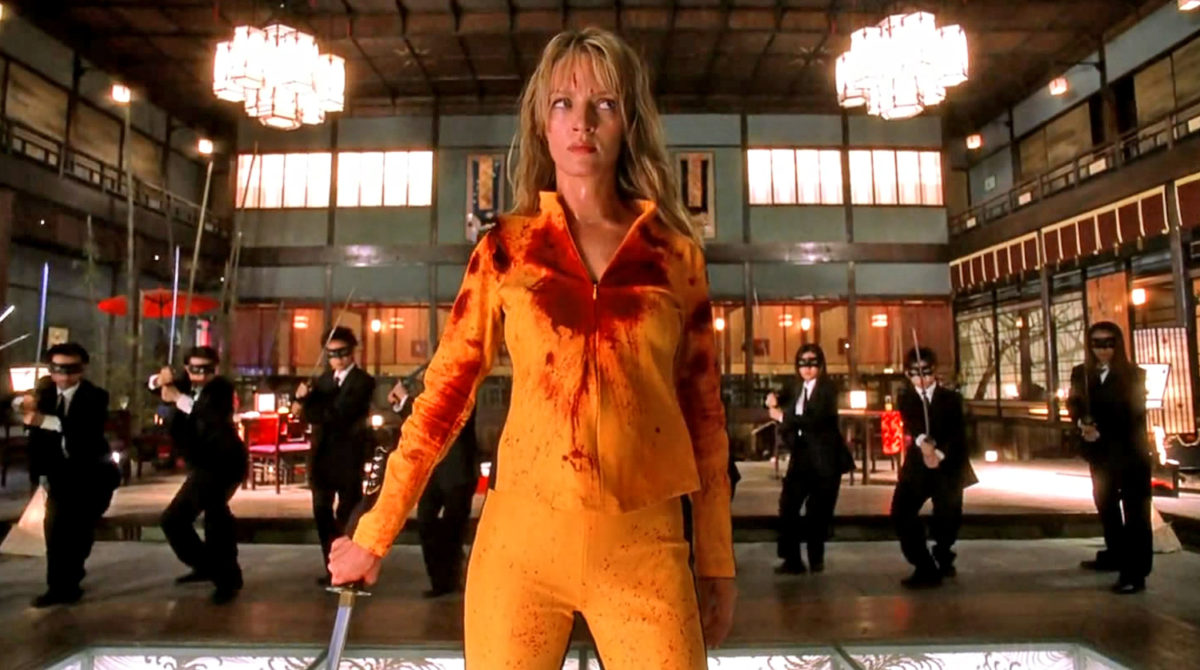
Uma Thurman’s apex performance and the best of Tarantino’s “pure”-genre excursions. KB:V1 is the most cathartic action film on our list and a masterwork of vibrant hyper-stylization. The Crazy-88 sequence remains a high-water mark for modern action filmmaking.
However, anchoring the chronically self-referential action set-pieces (and setting it apart from similar modern-martial-arts fan-fic of the same ilk) is a sense of emotional depth and honesty to Thurman’s The Bride, a testament to both her brilliant performance and Tarantino’s conception of the character. Unfortunately, any points that careful rendering may earn the writer/director are undermined by the reports of the director’s toxically misogynistic behind-the-scenes behavior, exemplifying the common discrepancy between the way men in positions of power tend to treat the female characters they create and the real women who work for them.
4. Enter The Dragon (dir. Robert Clause, 1973):
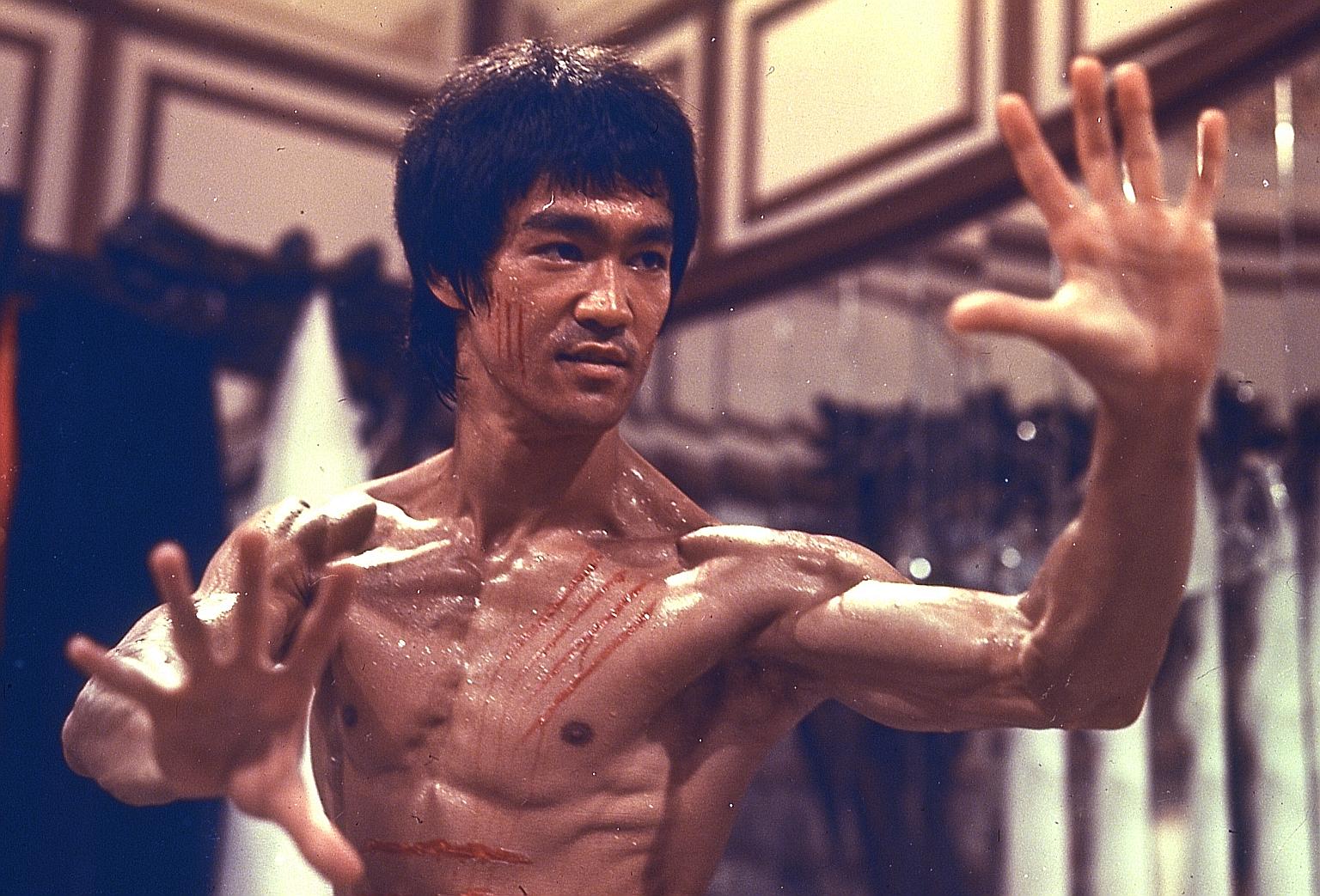
Sacrilegious to feature Bruce Lee outside the top three? Sure. It’s the lukest of luke-warm takes to say that Lee remains the purest marriage of martial arts mastery and movie stardom nearly five decades since his death; and though three films surmount his most famous work here in terms of personal preference, Enter The Dragon is easily the best showcase of his charisma and technical prowess in equal measure.
Extra shouts to the five-second Jackie Chan-as-henchman-number-37 easter egg, and Zach Effron-clone-sent-half-a-century-into-the-past John Saxon for making me deeply disoriented about what era of film I was watching on first viewing.
3. Hero (Zhang Yimou, 2002):
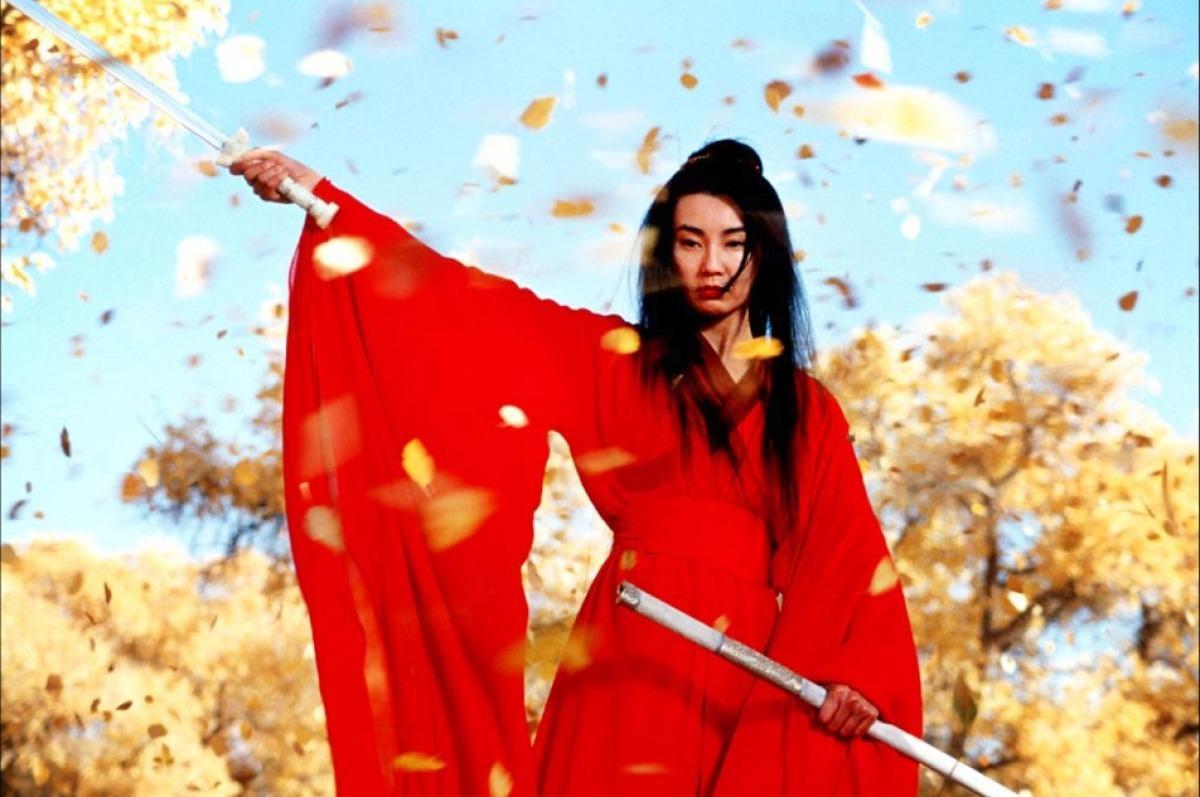
Hero is as visually stunning as its narrative is elegantly crafted, frequently relying upon its cinematic grandeur to distract the audience from the careful logistics of its storytelling. The film’s battles are a blur of saturated color, with choreography serving to evoke an emotional impact as much as to inspire an adrenaline rush.
Nominal-leading man Jet Li primarily sticks to the action and leaves the heavy dramatic lifting to the deepest bench on today’s list by a mile (composed primarily of a casting Venn Diagram of Ip Man biopics and Wong Kar-wai films). Tony Leung and Maggie Cheung return on the heels of their all-time-greatest-romantic duo performance in Director Wong’s In The Mood For Love, and while they no longer hold the center of the frame as in that film, they bring only marginally less emotional depth to their performances here.
They are joined by Zheng Ziyi (just off her star-making Crouching Tiger performance and ahead of her pairing with Leung in the Ip Man-centric The Grandmaster a decade later) and Donnie Yen (who more famously portrayed the Wing Chun master in the titular Ip Man series, and who’s martial artistry steals the Hero show in my humble opinion).
2. Legend of the Drunken Master aka Drunken Master II (dir. Liu Chia-Liang, 1994):
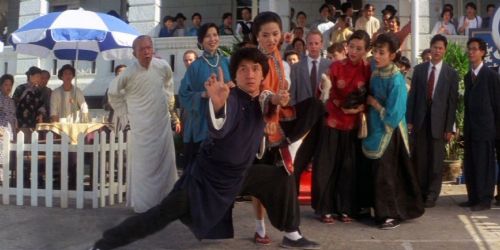
This nominal sequel to 1978’s Drunken Master epitomizes the brilliant integration of Jackie Chan’s genius as both a martial artist and a comic actor. The blinding speed with which he unleashes a flurry of impossible physical feats, takes a beat to contort his face into the perfect expression of drunken confusion, and then launches back into a new series of inhuman acrobatics is astonishing every time I return to it.
The film’s climactic steel-mill fight between Chan and Ken Lo is the hands-down apex of the genre for me, and Chan’s drunken boxing style remains second only to Bruce Lee’s Jeet Kune Do in its indelibility. While some of the comedy will read as dated to today’s audiences (most especially its occasional attempts to play domestic abuse for laughs), Legend of The Drunken Master remains at the top of Chan’s filmography on the back of his genuinely awe-inspiring physical and comedic performance throughout.
1. Crouching Tiger, Hidden Dragon (dir. Ang Li, 2000):
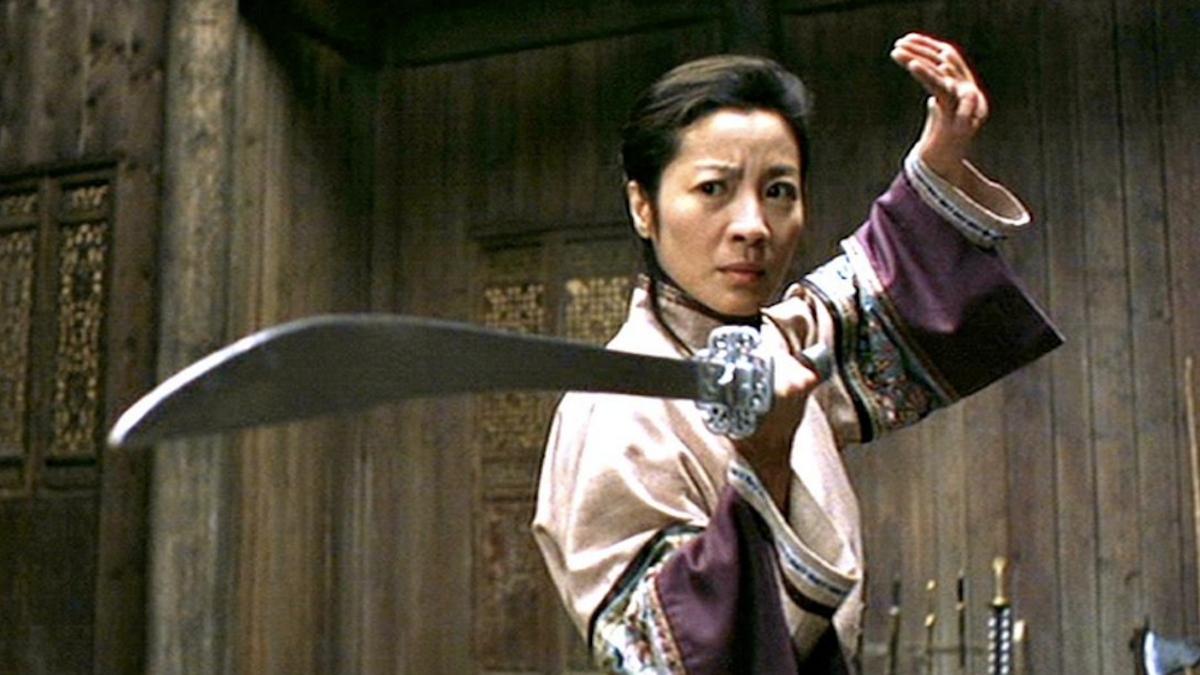
What defines Ang Li’s pre-Oscar-win masterpiece, aside from starring Michelle Yeoh, who is worth a minimum of two stars by herself in any project (here’s looking at you, two-and-a-half-star Tomorrow Never Dies) is the seamlessness with which its expansive mythology is grounded by the deeply personal narrative of its protagonists. The result is a story that at once feels epic in stakes and uniquely relatable in its emotional focus, dual love stories colliding with prophetic purpose.
Every time I revisit Crouching Tiger, I’m disarmed by how visually stunning it remains, with balletic choreography weaving in and out of naturalistic beauty (a blueprint for the stylistic approach that Hero would expand upon two years later). The wealth of emotion that Yeoh and her co-stars Chow Yun-fat and Zheng Ziyi (cementing herself as a Robert Horry-esque key player on yet another championship roster) imbue into their every movement, combative or otherwise, is a testament to their brilliance as performers and allows for a depth of storytelling possibilities that a lesser film would have to sacrifice for the sake of its action scenes.
While other individual fight scenes may surpass the best of Crouching Tiger, and other individual sequences may surmount its cinematography, no other film in the genre maintains such a high level of emotionally compelling excellence from start to finish, cementing it at the top of Nate’s Five Martial Arts Favorites.
…at least for today.
For a more comprehensive list of Nate’s martial-arts-film favorites, swing by his Letterboxd





